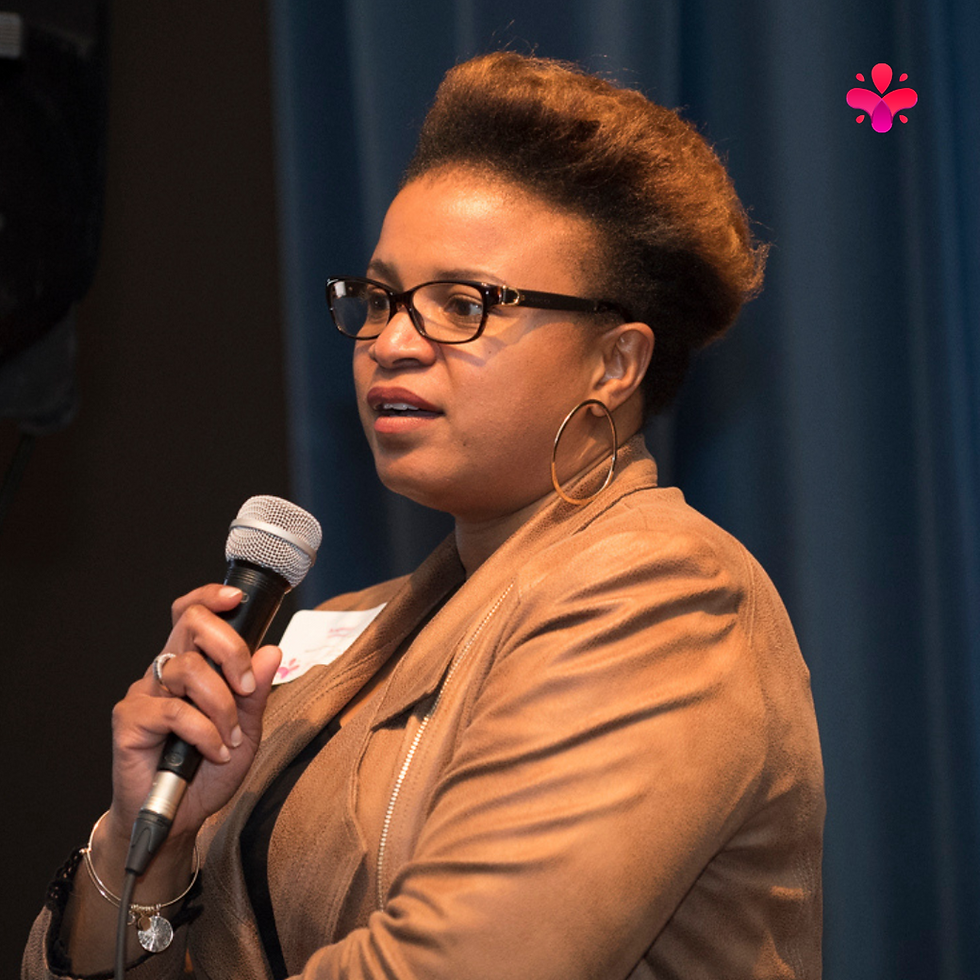Board Thought Leadership Series - Angelina Habimana
- WLP Administration
- Aug 22, 2022
- 3 min read
Updated: Jul 24, 2023

WLP Thought Leadership Series is a bi-monthly communication to Women Leaders in Pharma from the WLP Board of Directors. It is intended to be thought provoking, stimulate reflections on industry trends and leadership, and further empower women to reach their full potential.
Should we avoid failure at all costs?
Dear Women Leaders in Pharma,
People tend to strive for excellence on all levels, and especially to avoid failures at all costs out of fear of humiliation, ridicule, or losing their credibility. This includes the times when I didn’t speak my mind because I was afraid it would seem out of context, or the times when I did not volunteer to participate on a project for which I had not mastered well enough, or even the times when I didn’t dare to speak to someone who impressed and inspired me, out of fear of not having something smart enough to say… Does this sound familiar to any of you?
This summer, I really took the time to reflect on how I could go beyond my capabilities and aim for more ambitious goals. The answer came from someone who suggested that I should take on the projects that scare me the most so that I could better identify the moments when I am out of my comfort zone.
According to a survey conducted by Norwest Venture Partners in 2018, 90% of CEOs admit that more than anything else, fear of failure is what keeps them awake at night. This longing for perfection, to not make any mistakes, can also lead to risk aversion and ultimately to bad leadership. Courage is the key that allows us to face our fear of failure, while also using caution in our approaches and in finding solutions to the problems we encounter.
It appears that perfectionism and fear of failure go hand-in-hand, leading us to believe that success is not about doing things right, but rather about preventing a problem or failure from occurring.
In response, here are some suggestions I found in the literature that can help us overcome our fears and become more at ease in the face of uncertainty:
Focus your attention on the goals you want to achieve rather than obsessing over the mistakes you want to avoid.
Focus on and enjoy the present moment: Whatever challenges you face in the future, you will cross those bridges when you get there.
Visualize your courage: Imagine the worst-case scenario and what you would do about it. Let’s work on picturing several different scenarios in order to be better prepared.
Consciously “verbalize” your humility: Instead of hoping to not make mistakes or experience failure, focus your attention on how you could deal with this situation without being carried away by feelings like shame or ridicule.
In any case, failure is not always preventable. Experiencing failure remains an opportunity for learning and growth. The next time that I have this experience, I will try to remember to treat myself with a little more compassion, just as I would do for a colleague. Furthermore, I will strive to focus on my learning and the opportunity to be even more successful. Above all, I will share my experience with colleagues, since it allows us to put our failures into perspective in order to better assimilate them.
Sources:
(1) https://www.theatlantic.com/family/archive/2021/02/how-overcome-fear-failure/618130/: Brooks, Arthur C. “Go Ahead and Fail.” The Atlantic, Feb. 25, 2021.
(2) https://hbr.org/2018/12/how-to-overcome-your-fear-of-failure : Peppercorn, Susan. “How to Overcome Your Fear of Failure.” Harvard Business Review. Dec. 10, 2018.
(3) https://www.mckinsey.com/~/media/mckinsey/email/leadingoff/2021/10/04/2021-10-04b.html : Javetski, Bill. “Leading Off: The leader’s guide to failing successfully.” McKinsey & Company. Oct. 4, 2021

Commenti